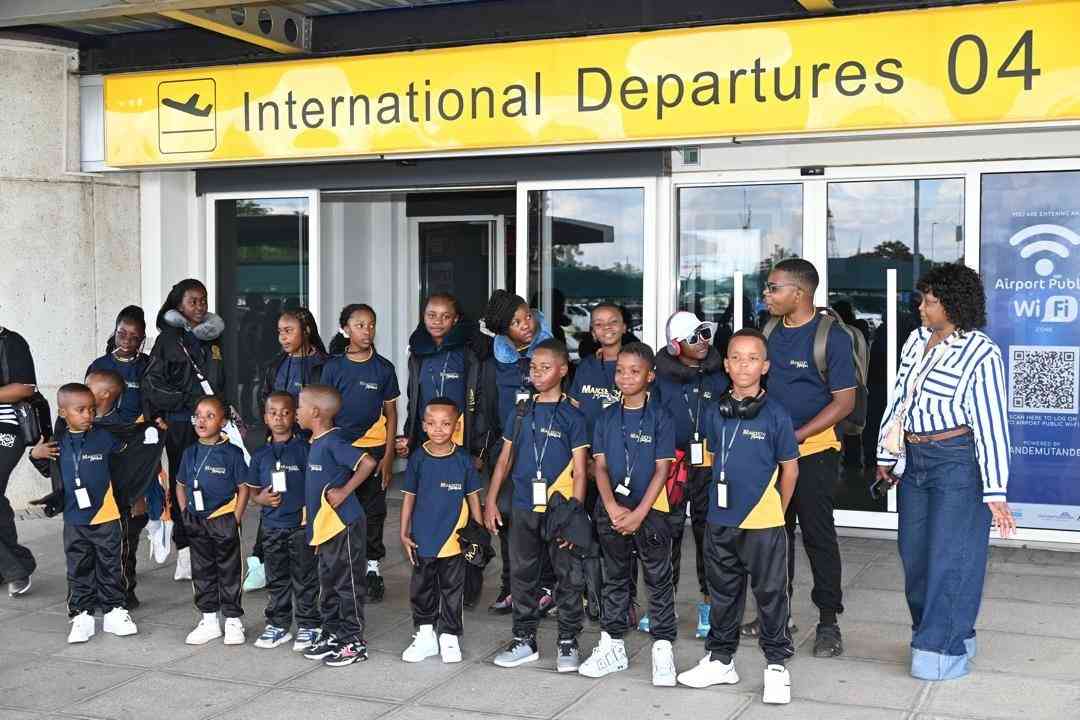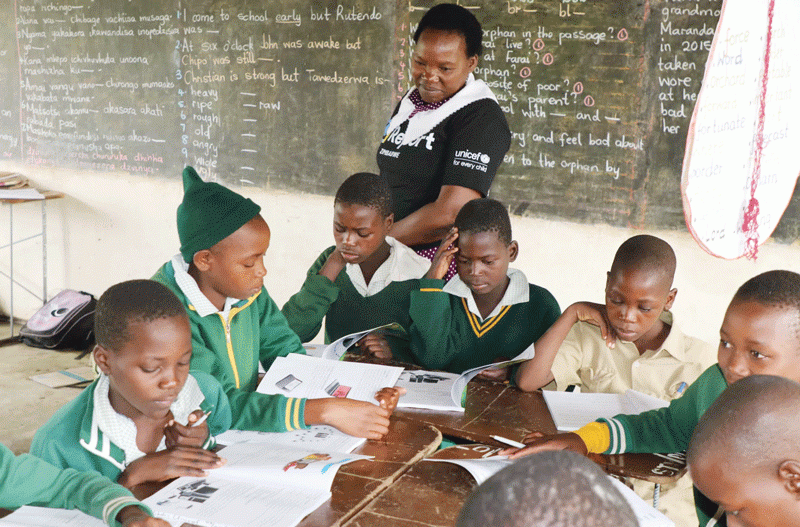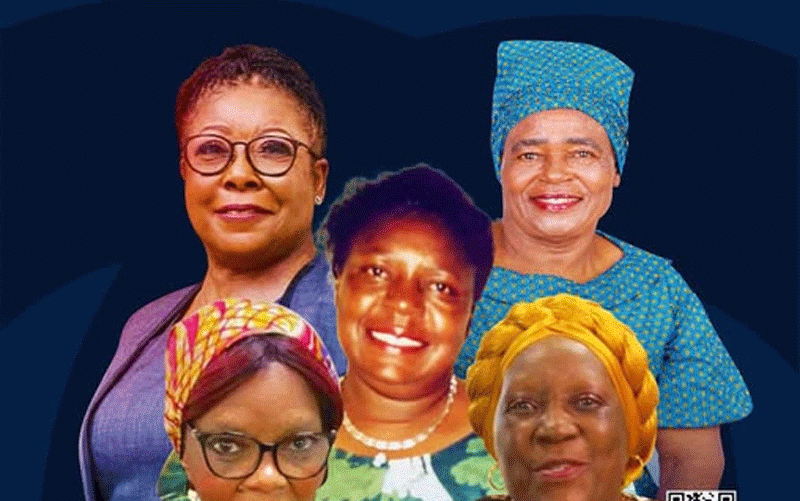
By Moses Mugugunyeki
Tendai Katuruza [not her real name] from Kairezi ward in Muzarabani in Mashonaland Central province believes government should recognise the empowerment of women through the provision of adult literacy education and other forms of enriching women academically.
Katuruza, who got married at the age of 15, said most women of her age in the area are illiterate and have problems when it comes to reading newspapers, pamphlets and the Bible.
“Most women here cannot read and write, even their names,” Katuruza told Standard Style on Thursday.
“We have smart phones, but we cannot use WhatsApp and other social media platforms because we cannot read and write.
“I feel that most women lag behind our male counterparts when it comes to the current technological advancement and I challenge government to promote the progression of women educationally.”
Katuruza is among millions of girls across the globe deprived of education due to poverty and discrimination.
For impoverished families, particularly in marginalised communities like Muzarabani, education has never been a priority for the girl child, says Katuruza.
- Chamisa under fire over US$120K donation
- Mavhunga puts DeMbare into Chibuku quarterfinals
- Pension funds bet on Cabora Bassa oilfields
- Councils defy govt fire tender directive
Keep Reading
“Most girls here marry at a very young age. Rarely, you would see girls go to secondary school here,” she said.
According to Unicef, among girls and boys who enroll in secondary education, only a fraction of them complete upper secondary schooling.
In the least developed countries, for example, 20% of boys finish upper secondary education, compared with only 15% of girls.
Girls who leave school early lack skills and knowledge needed to acquire higher-paying jobs.
Katuruza said her parents failed to raise money for her to go to secondary school, which left her with no choice but to get married.
She believes there is more the government can do to help the girl child get an education.
“Government must avail education facilities to the girl child as this is how the basis of a future is created,” Katuruza said.
“Most Zimbabweans cannot afford the standard school fees, compromising the education of the girl child.”
Katuruza, a mother of three daughters, said a woman does not need a learned man to add value to her life.
“I will make sure that my children get the best education. As for me, if given a chance I would go back to school,” she said.
The prolonged school closures due to Covid-19 have had far-reaching implications for girls’ education, Katuruza says.
“A number of girls in our area ended up getting married as they had nothing to do after the lengthy closure of schools due to Covid-19,” she said.
Latest data from government indicates that there has been significant increase in teenage pregnancy during the Covid-19-induced lockdown.
About 5 000 teenage girls became pregnant in January and February and about 1 800 entered early marriages during the same period.
Mashonaland Central province is among the places with the highest early marriage prevalence.
Judith Nherera, a Grade 7 pupil at Chiwenga Primary School on the fringes of the border with Mozambique, dreams of becoming a teacher when she completes school, but her biggest obstacle could be the perception of her community with regards to girls’ education.
Nherera contemplates marrying a husband of her choice after completing school, but she could be a victim of discrimination as her community opts to send boys to school, especially to secondary school.
“I am in Grade 7 and I want to be a teacher when I complete school,” she said.
“I am sure my father will pay my fees and allow me to go to school. It’s unfortunate the secondary school is several kilometers away.
“I don’t want to get married very early.”
Experts say education is critical as it helps eliminate child marriages, which girls in marginalised communities are more susceptible to because of poverty.
According to Unesco, if all girls completed primary school, child marriage would fall by 14% and if they all finished secondary school, it would plummet by 64%.
“Education can help curb child marriages, because educated mothers are more likely to send their children to school, especially their daughters,” said social commentator Dorothy Chirwa-Tumbo.
Hope Alive Child Network founder and coordinator Patience Dube said girls faced a number of obstacles in accessing education in Zimbabwe.
“Children in rural areas walk long distances to schools, especially secondary schools, which result in children, particularly girls failing to proceed beyond Grade 7,” said Dube.
“The other issue is about gender stereotyping where the girl child would be forced to drop out of school and stay at home playing the mother figure, taking care of household responsibilities.”
Dube said other hurdles forcing girls out of school included teenage pregnancies and poverty, including failure to pay school fees and buy stationery by their parents or guardians.
She, however, said they were reaching out to communities raising awareness on the importance of sending girls to school.
“We educate communities about the significance of education where we conduct dialogues and campaigns with parents and guardians,”Dube said.
“We engage communities on how education can change the lives of children [the positive impact of education to a girl child] as schools are regarded as the safe place for a child.
“As an organisation, we also have income generating projects training with the aim of increasing household income, so that parents can send their children to school.
“We distribute sanitary wear to end period poverty as some girls fail to attend school because of menstrual poverty.”
Zimbabwe’s adult literacy rate of 96% makes it the highest in the region. However, women constitute 60% of the illiterate adult population and the school dropout rate, particularly among female students, still remains high.
Enrolment at secondary school level and tertiary institutions is also significantly lower for females than for males.
According to a teacher in Muzarabani, most girls drop out of school when they reach secondary school with the majority of them getting married.
“We have recorded high girl drop-outs at secondary school and I attribute this to a number of factors,” the teacher said.
“Some of these girls are forced out of school because parents would have failed to pay school fees while the bulk gets married. There is a shortage of schools in this area, so children have to travel long distances which compels many to drop out.”
Denying the girl child access to education is endangering efforts to realise the internationally agreed sustainable development goal number four, which says “Ensure inclusive and quality education for all and promote lifelong learning”.
Today, over two thirds of the world’s 860 million illiterates are women. The ILO says failure to educate girls costs developing countries $92 billion a year.
In the wake of challenges girls face in accessing education, Merck Foundation launched a programme dubbed Educating Linda in 2019 with the aim of helping disadvantaged girls to continue their education.
“The spirit of the project is to provide an opportunity to such girls to pursue their dreams and reach their potential through access to education,” said Merck Foundation CEO Rasha Kalej.
“It has been seen that many girls drop out of school due to lack of necessities such as fees and uniform.
“Merck Foundation will be supporting education of some of the high performing girls by providing scholarships and grants that can cover school fees, school uniforms and other essentials including notebooks, pens and mathematical instruments, so they can reach their potential and pursue their dreams.”
The Educating Linda programme is contributing to the future of thousands of girls in partnership with the African first ladies as part of the Merck Foundation More Than a Mother campaign, from several countries including Zimbabwe.
World Vision in collaboration with Plan International and Camfed is working on a number of projects in Zimbabwe meant to assist girls access education in Zimbabwe.
One such programme is titled Improving Gender Attitudes, Transition and Education outcomes, which among other aims seeks to improve learning outcomes and positive transitions for 30 550 marginalised girls in rural communities.











